Professional electromyography testing that pinpoints exactly what’s causing your muscle weakness, numbness, or tingling sensations.
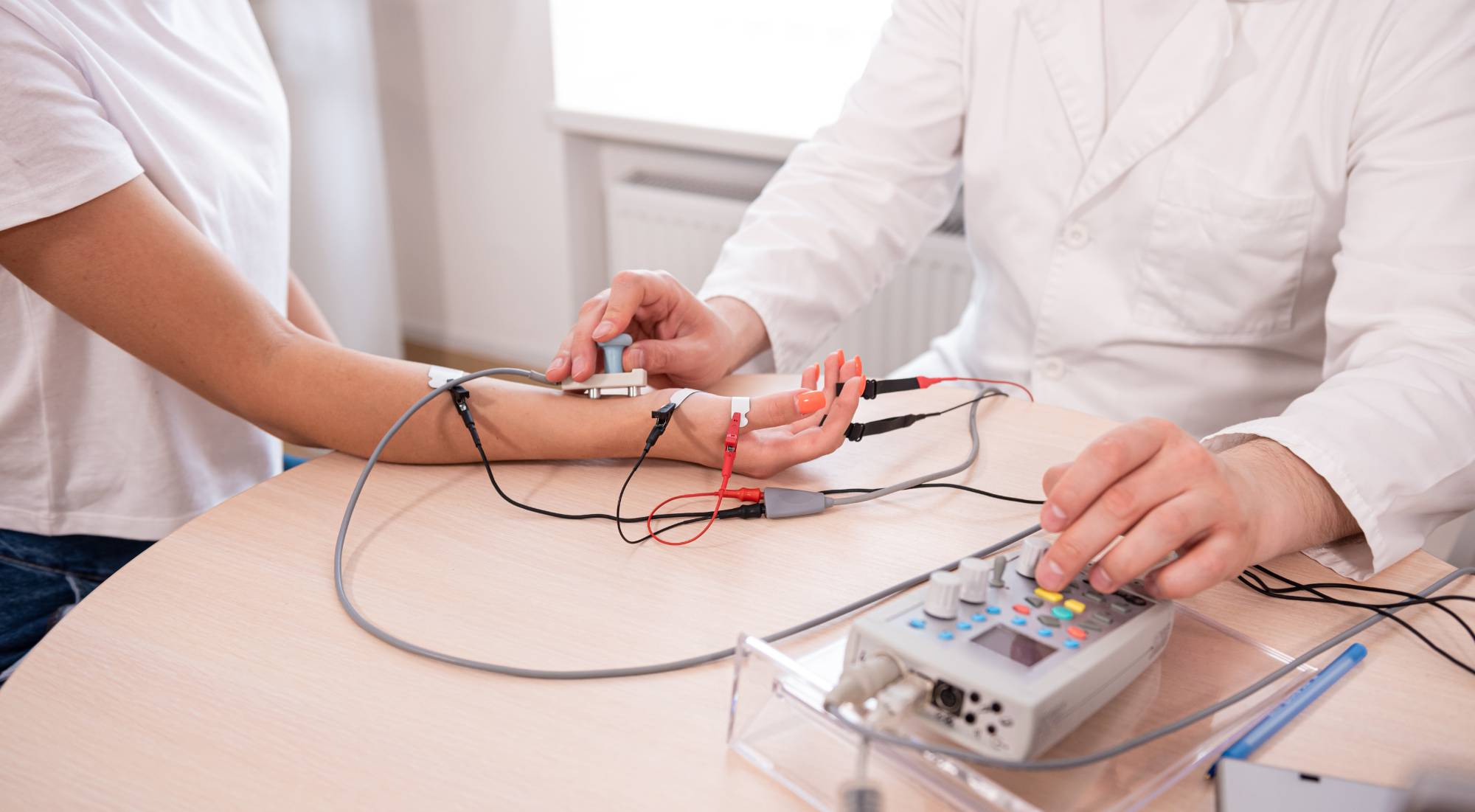
Reviews
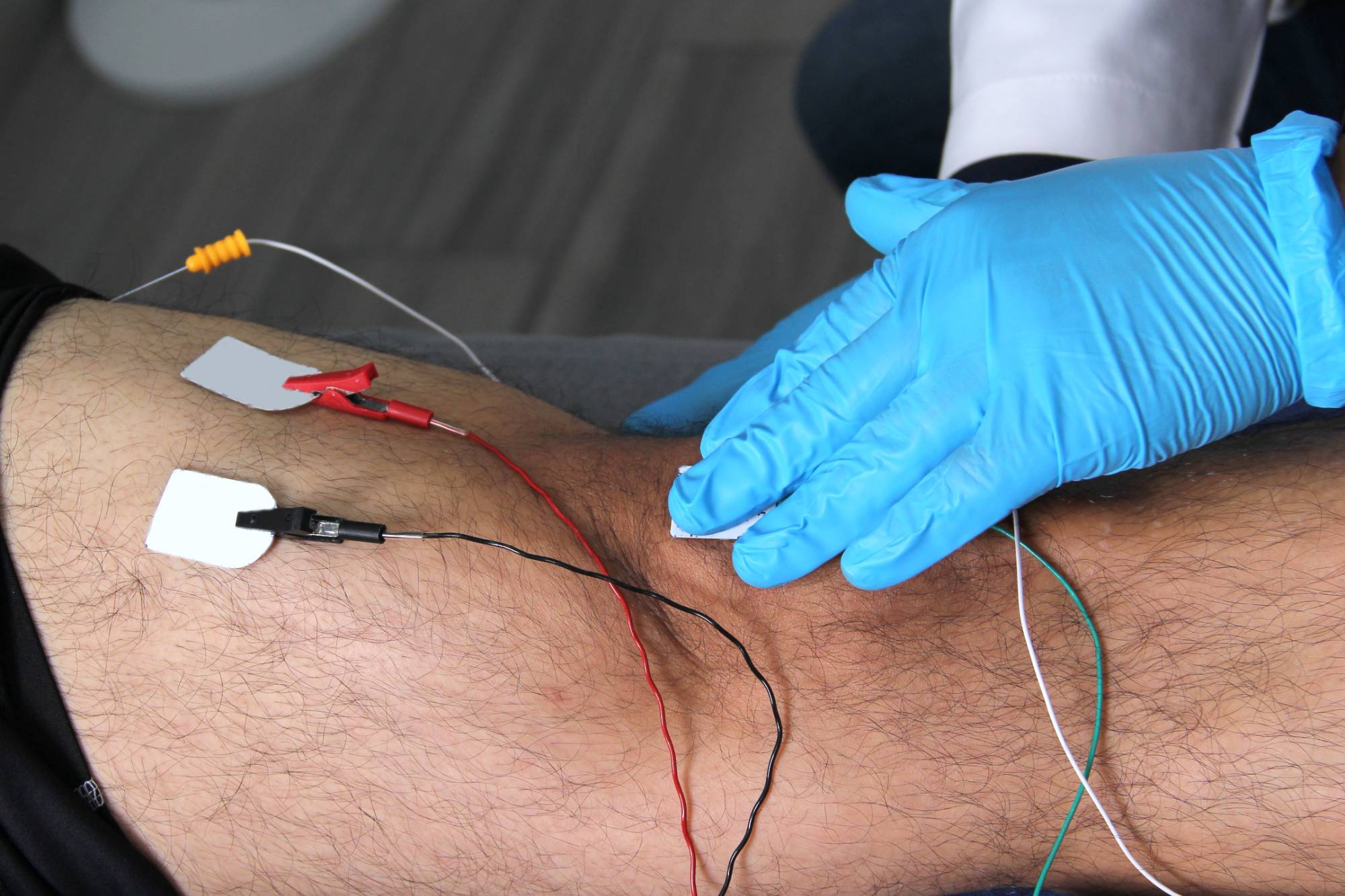
You’ve been dealing with unexplained symptoms long enough. That numbness in your hands, the shooting pain down your leg, or the muscle weakness that’s affecting your daily life deserves real answers.
EMG testing gives you those answers. Within 30-60 minutes, you’ll know if your symptoms are caused by nerve damage, muscle disorders, or conditions like carpal tunnel syndrome or sciatica. No more guessing. No more wondering if it’s all in your head.
Once you have a clear diagnosis, you can move forward with targeted treatment instead of trying random therapies that may not address the root cause. Most patients leave feeling relieved just knowing what they’re dealing with and having a clear path forward.
We’ve been serving the Hollis community and surrounding Queens areas for years, providing accurate neurological diagnostics when you need them most. Our team specializes in EMG and nerve conduction studies, using advanced equipment to deliver precise results.
You’re not just getting a test here. You’re getting interpretation from specialists who understand what your results mean for your specific situation. We focus on clear communication, ensuring you understand your diagnosis and next steps before you leave.
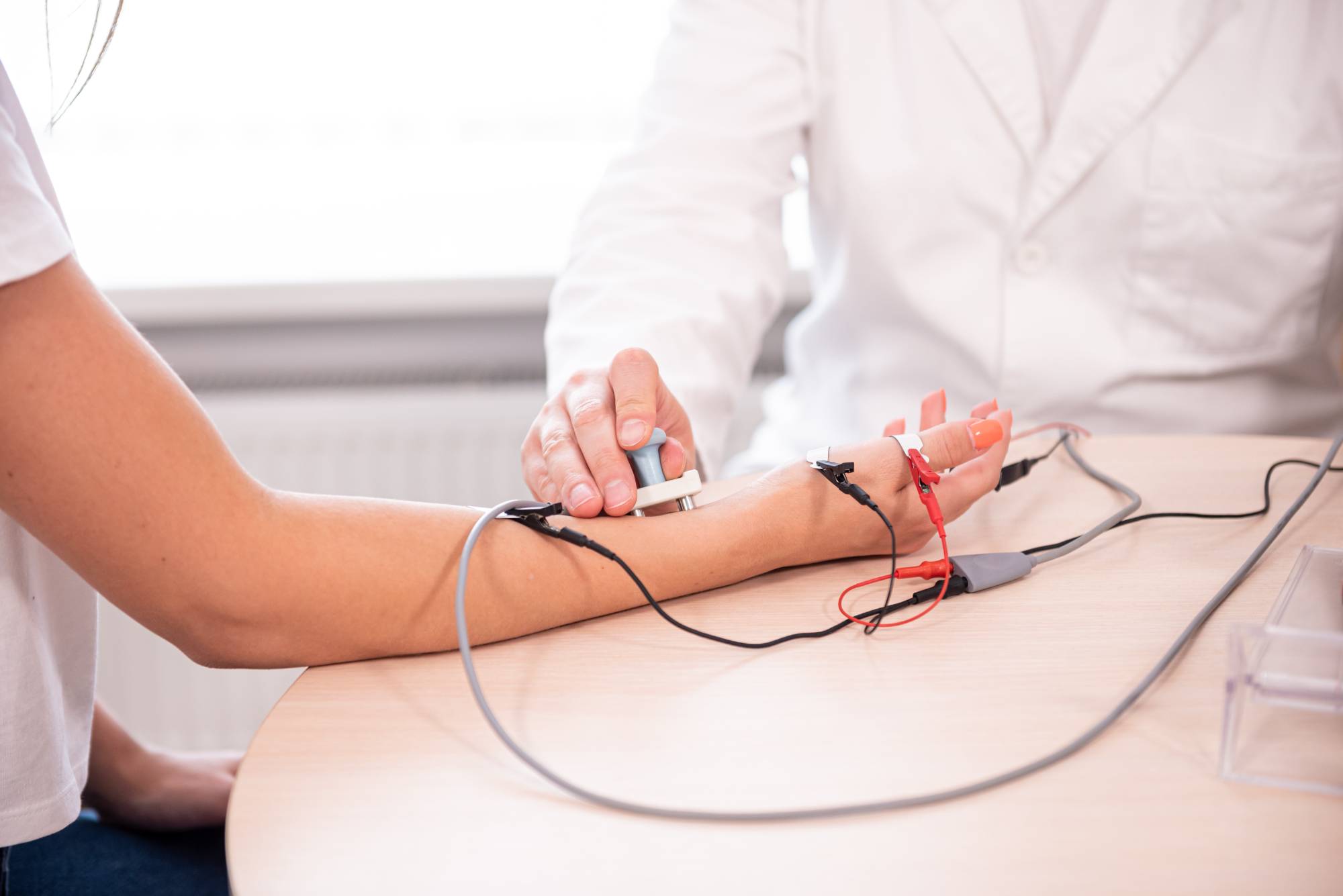
Our EMG testing process is more straightforward than most people expect. You’ll start with a brief consultation where we review your symptoms and medical history. This helps us target the testing to your specific concerns.
During the nerve conduction study portion, small electrodes are placed on your skin to measure how well electrical signals travel through your nerves. For the electromyography portion, a thin needle electrode is inserted into specific muscles to measure their electrical activity. Most patients describe the sensation as similar to getting a vaccination.
The entire process typically takes 30-60 minutes depending on which nerves and muscles need testing. You’ll get your results immediately, along with a clear explanation of what they mean. No waiting weeks for answers or trying to interpret confusing medical reports on your own.
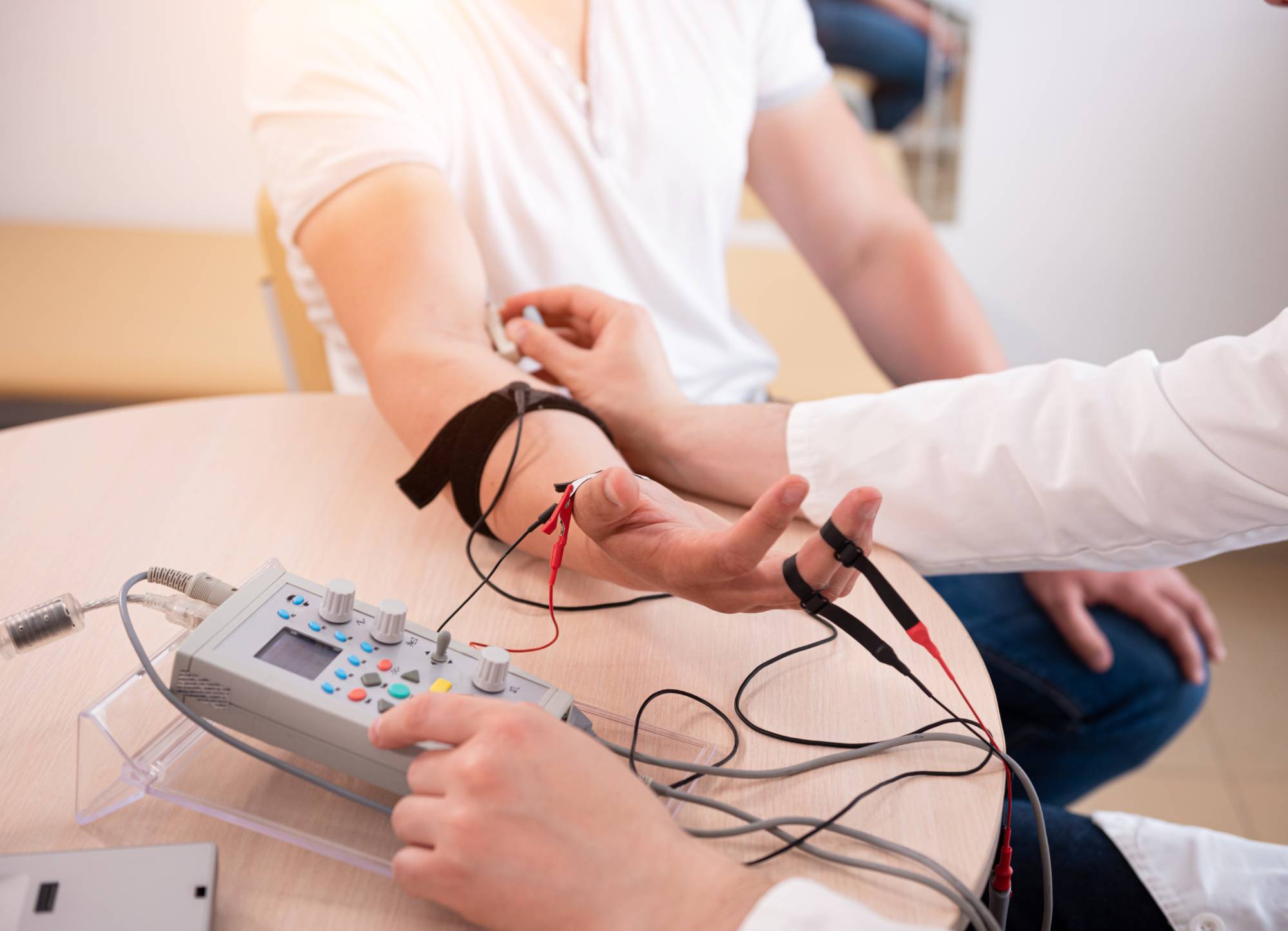
Ready to get started?
Our EMG testing includes both electromyography and nerve conduction velocity studies, giving you a complete picture of your nerve and muscle function. This comprehensive approach helps identify conditions like carpal tunnel syndrome, ulnar neuropathy, radiculopathy, and peripheral neuropathy.
You’ll receive detailed results that pinpoint exactly which nerves or muscles are affected and to what degree. This precision helps avoid unnecessary treatments and guides your doctor toward the most effective therapies for your specific condition. Many Hollis area patients find this testing especially helpful for workplace injury evaluations and chronic pain diagnosis.
The testing is covered by most insurance plans, and same-day appointments are often available for urgent cases. You don’t need to suffer through weeks of uncertainty when clear answers are available quickly.
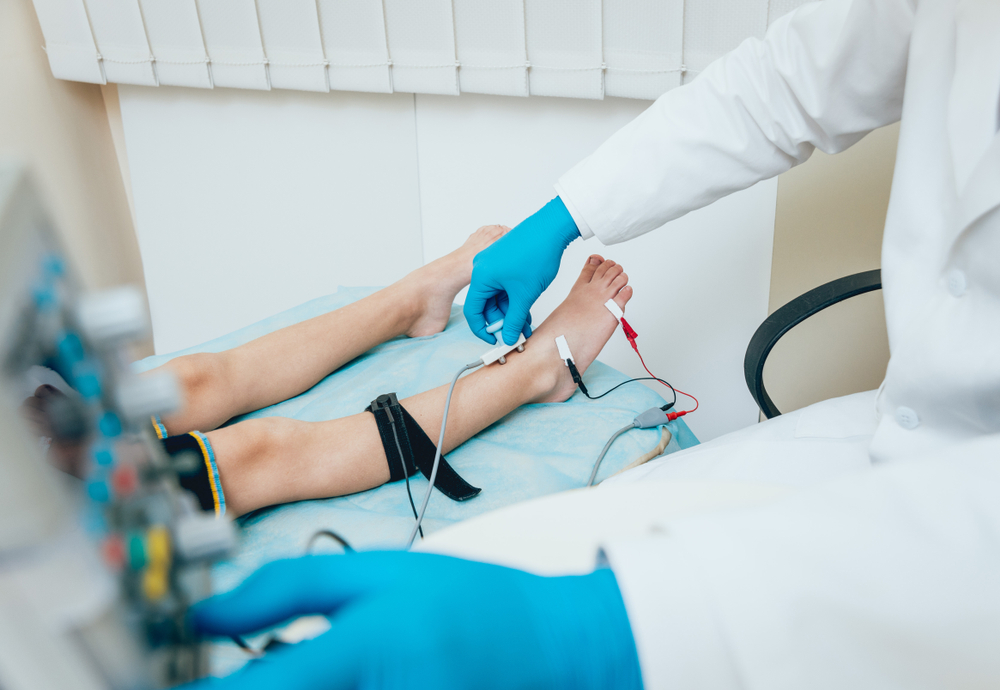
New York:
Florida:
Support